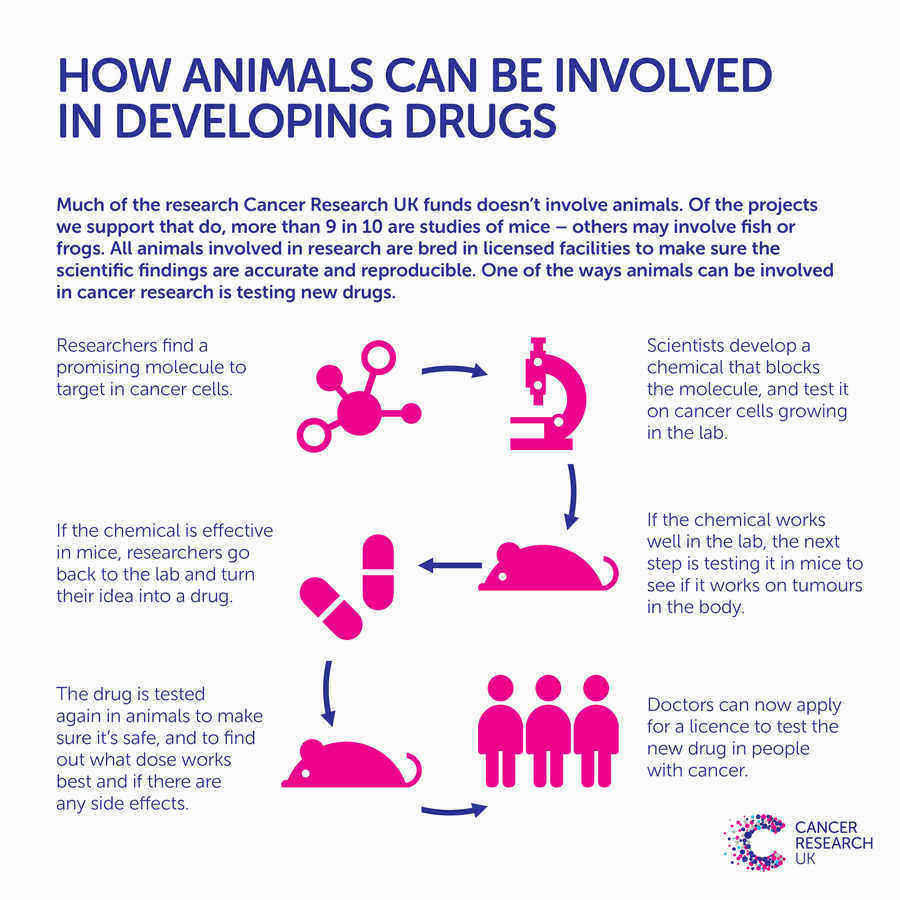Helping develop better treatments

Professor KJ Patel, Chief Scientist at Cancer Research UK
Science involving animals has been vital for the discovery of drugs such as tamoxifen for breast cancer, which has saved thousands of women’s lives. And scientists first spotted the potential of Glivec in research involving mice – a drug that cures people with chronic myeloid leukaemia.
Antibody treatments were also developed thanks to animal studies, leading to treatments like cetuximab for bowel cancer, and drugs that harness the body’s immune system to fight cancer.
Animal research has also been crucial for improving radiotherapy and surgery (for example keyhole surgery was first tested in animals), and for developing ways to prevent cancer, such as the HPV vaccine to lower the risk of cervical cancer.
Understanding how faulty genes cause cancer couldn’t be done without animal research because researchers need to look at the whole body, rather than individual cells or tissues. By making genetically engineered mice – something that can’t legally be done in people – scientists helped prove that faulty versions of genes like BRCA1 and APC are behind many cancers. And this knowledge has led to ways for people who inherit these faulty genes to reduce their cancer risk.

Find out more
For further information about involving animals in our research:
Here are some links to information from other organisations:
 Helping develop better treatments
Helping develop better treatments